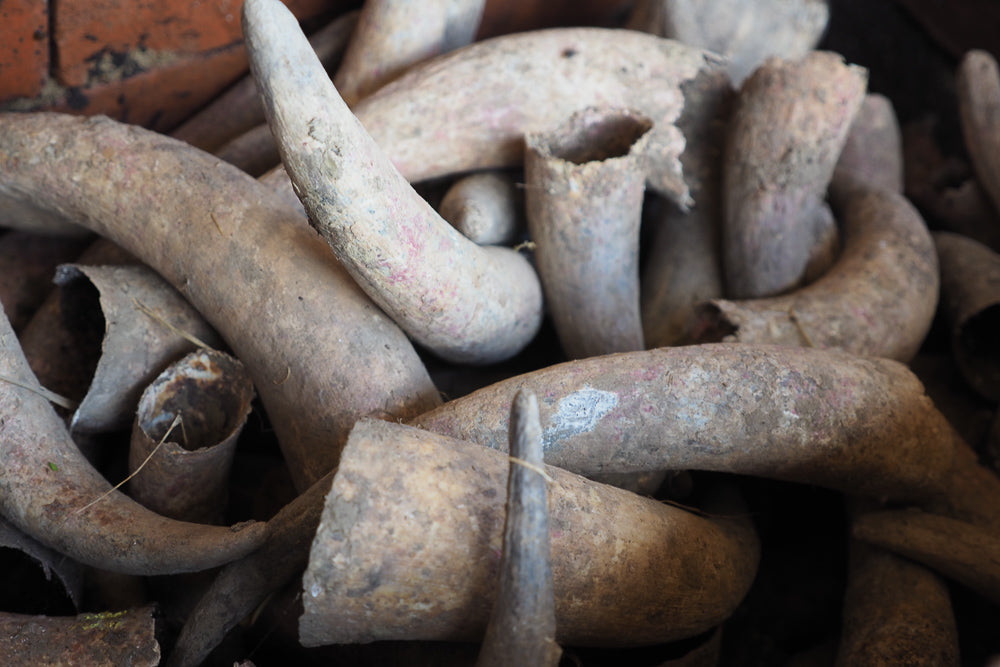Wines classed as biodynamic are produced without the use of synthetic fertilisers or pesticides, meaning they share many characteristics with organic wine, but biodynamic wine is a category to be celebrated and experienced by itself.
Organic And Biodynamic Wines: What’s The Difference?
It’s easy to poke fun at biodynamic wine as the slightly hippy cousin of organic farming. Yet a rising number of wineries - Romanée-Conti, Château Palmer and Louis Roederer to name a few high-profile examples - have embraced organic wine’s more radical cousin.
Organic and biodynamic wines share common foundations; all biodynamic vineyards practice organic viticulture, meaning grapes are grown without the use of manmade chemicals or GM products. However, there are extra dimensions to biodynamic wines and the impact of these are tricky to quantify.
In 2017, around 4.5% of the world’s wine grape vineyards were certified organic or biodynamic. Certified biodynamic wine can be identified by the trefoil logo of Demeter (the largest body certifying biodynamic wineries) or the French-based Biodyvin.

How Is Biodynamic Wine Produced?
Biodynamic wines are produced on biodynamic vineyards, which are treated holistically as entire ecosystems of their own. The practices and preparations that go into biodynamic wine are what makes it so unique
In a biodynamic vineyard:
- Vines are treated regularly with nine herb and mineral-based preparations
- Tasks such as planting, pruning, picking, and bottling are carried out based on the lunar calendar
- Farmers believe that when all of these elements are in balance, the vines will produce better quality grapes, and therefore higher quality wine
- Organic matter is built within the soil - something that’s also done in organic farming. This is because producers are aiming for soils that are rich with nutrients and insect life, just like the forest floors the vines evolved from. This can improve plant health, as well as resistance to pests and disease
- Composts and manure are used by biodynamic wineries to create their own soil improvers, helping them to work towards their venture becoming self-sustaining
- Numbered special preparations are ‘dynamised’ (stirred energetically into water) to the soil, compost, or plants themselves to build strength and counter pests and diseases - something that does raise a few eyebrows
- Some biodynamic farmers believe preparations should be buried in cow horns, bladders or intestines for a period of time before use, and all of them should be applied according to the celestial calendar. This, some biodynamic wine producers argue, creates ‘formative forces’ capable of transmitting energy and health to the soil, vines, and therefore the grapes
Wine writer Jamie Goode explains: “It is helpful to think of biodynamics not primarily as an agricultural system, but rather as a philosophy or worldview that then impacts on the practice of agriculture in various ways.
"To farm biodynamically, first you have to think biodynamically”.
The Challenges Of Producing Biodynamic Wine
Producing biodynamic wine is not a decision to be taken lightly; not using chemicals to control weeds or to treat diseases requires winemakers to be very hands on, spending more time in the vineyards, ploughing and cutting or administering preventative doses of various preparations, and anticipating problems thanks to an intimate knowledge of each vine.
Biodynamic farming can also result in lower yields if it’s a tough year for pests or disease. Birgit Braunstein, a biodynamic producer from Burgenland in Austria, says: “I see myself as a landscape conservationist. Aware that I have only borrowed the land from the next generation.
"As a farmer, I can make a major contribution to preserving nature and protecting the climate.
“As a consumer, I can decide what kind of agriculture I support. It is therefore my concern to produce healthy, vivid wines that give enjoyable hours.”
Does Biodynamic Wine Taste Better?
Whether biodynamic wine tastes better than other types of wine is extremely subjective. There are a lot of variables in viticulture and winemaking that will impact the taste of biodynamic wine. Ultimately, we’d always rather drink a wine that’s been made with care and passion by producers who are scrupulously attuned to their vineyards - and if that happens to be a biodynamic wine, that’s brilliant.
Biodynamic Wine At The Sourcing Table
We’re excited to stock some truly innovative biodynamic wines from vineyards across the globe at The Sourcing Table. Our biodynamic wine collection includes sparkling wines, as well as orange, red, and white wines, so there’s something for every preference.
We stock biodynamic producers including Mischief and Mayhem, Austria’s Brigit Braunstein, and Domaine MANN, from whom we’re delighted to offer several exclusive vintages.
Experience wines that have been produced in a truly unique way and shop our full collection of biodynamic wines here.
